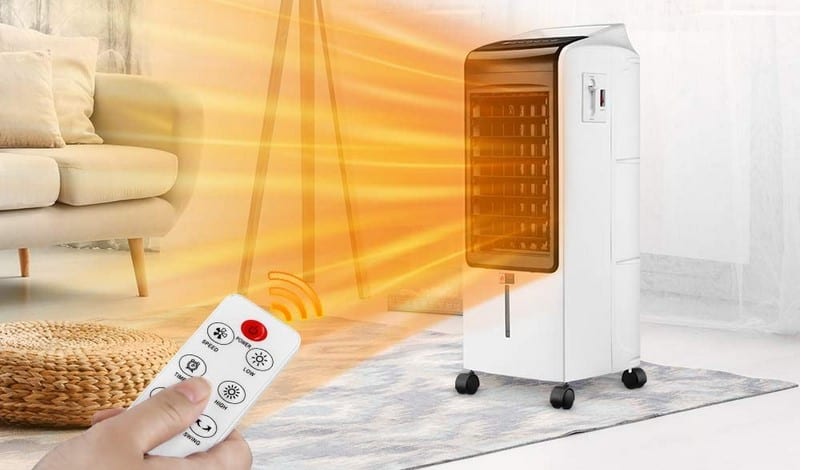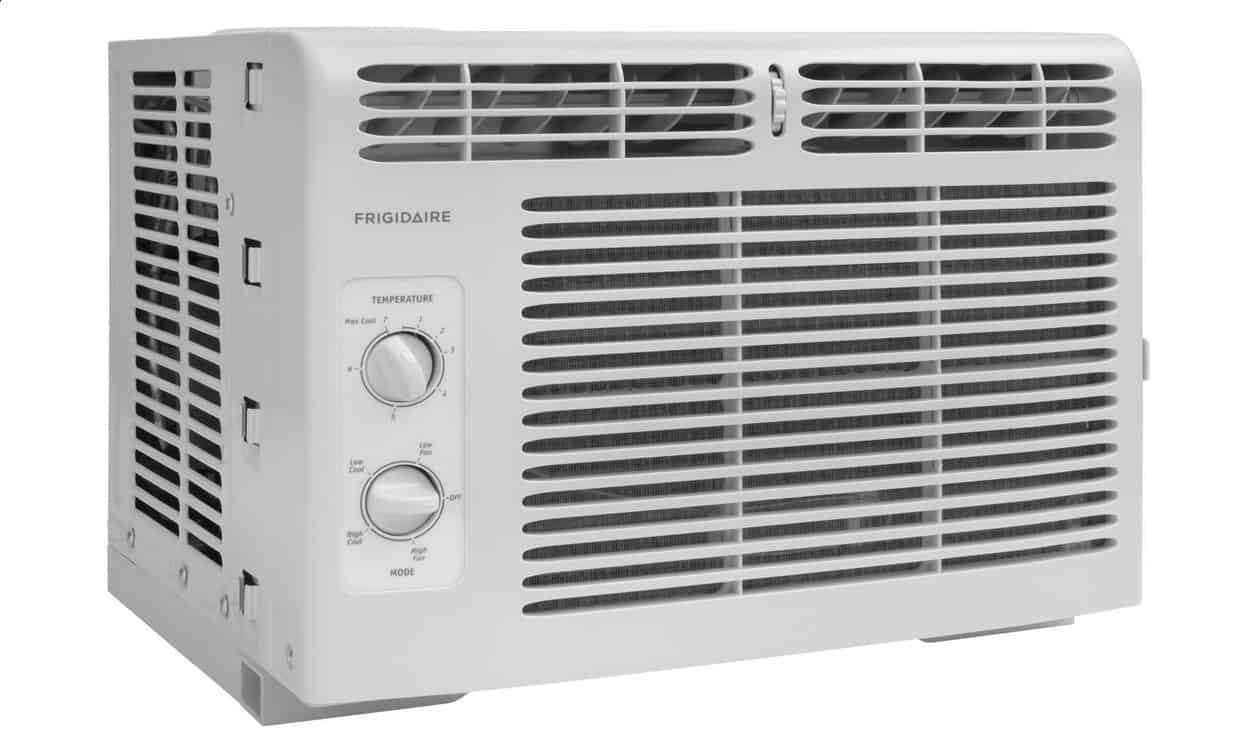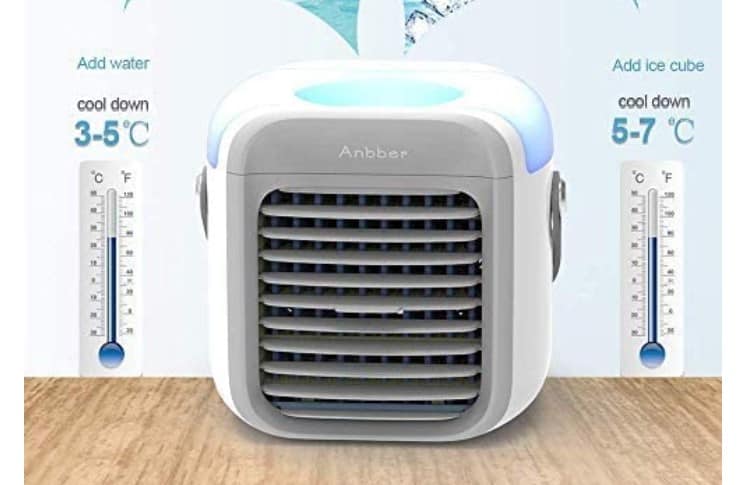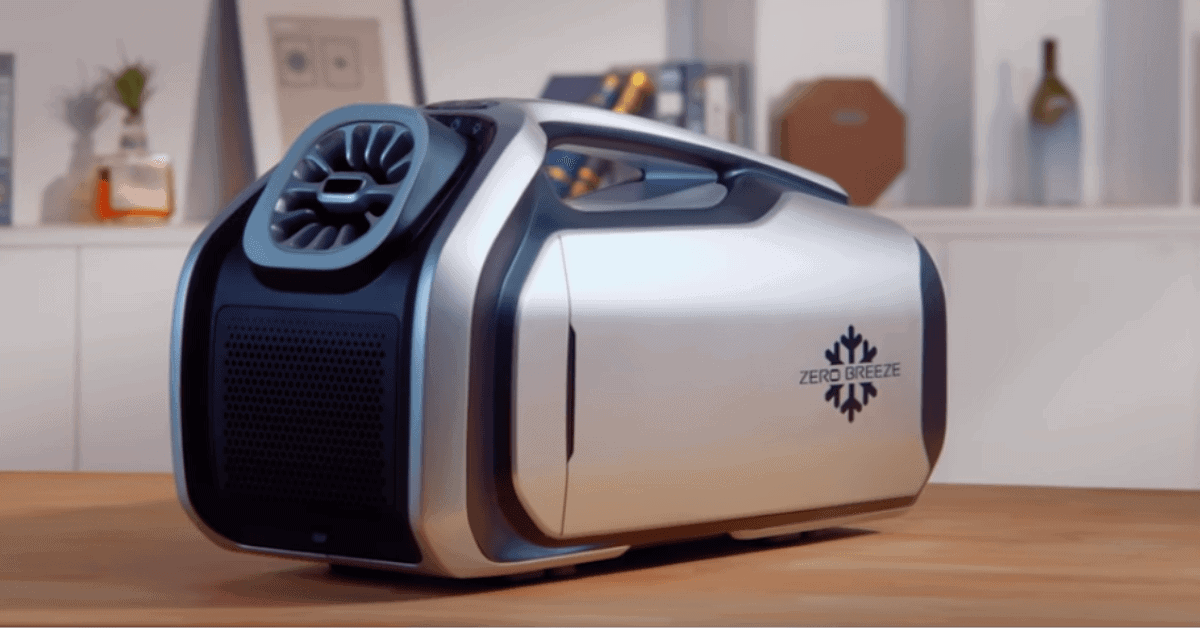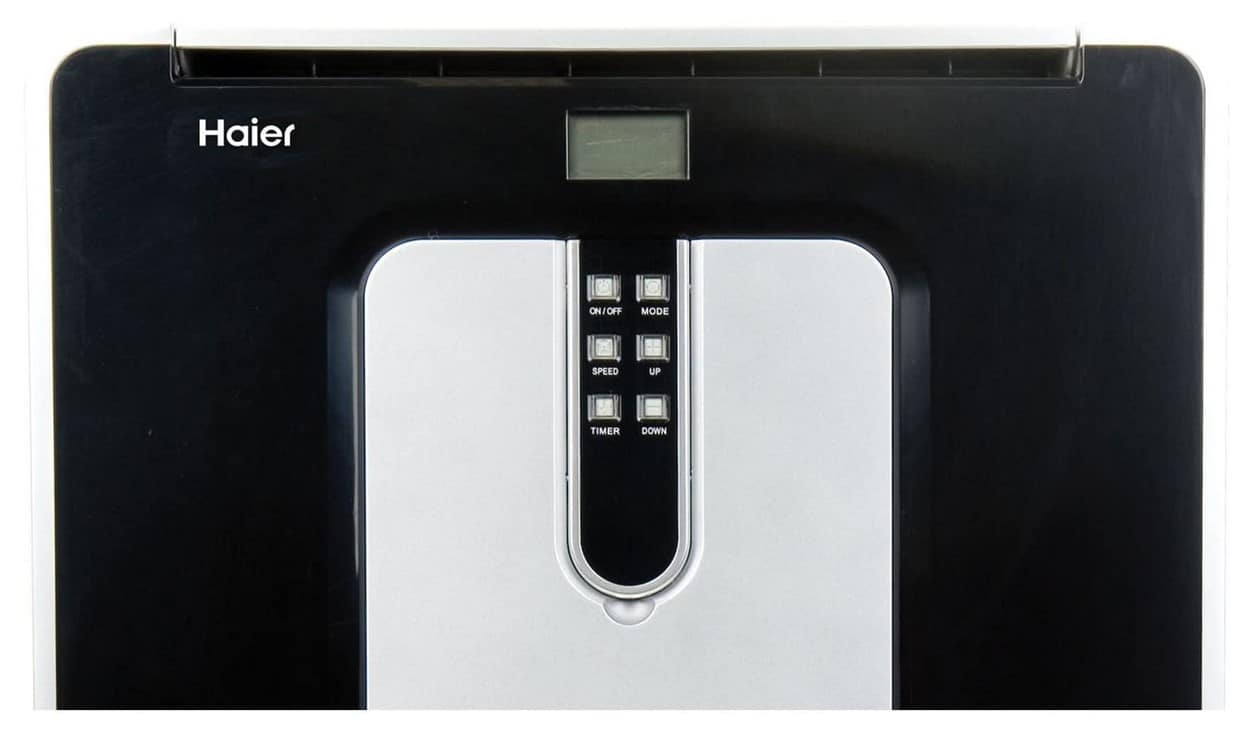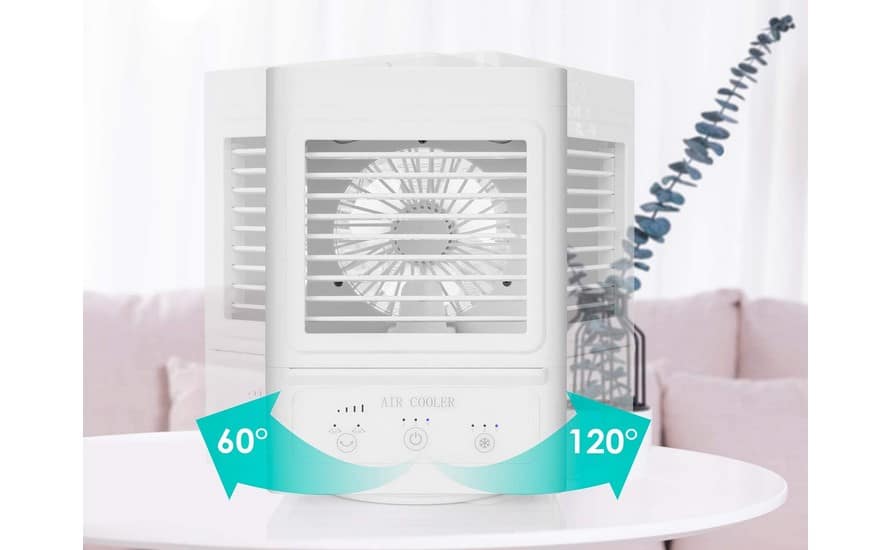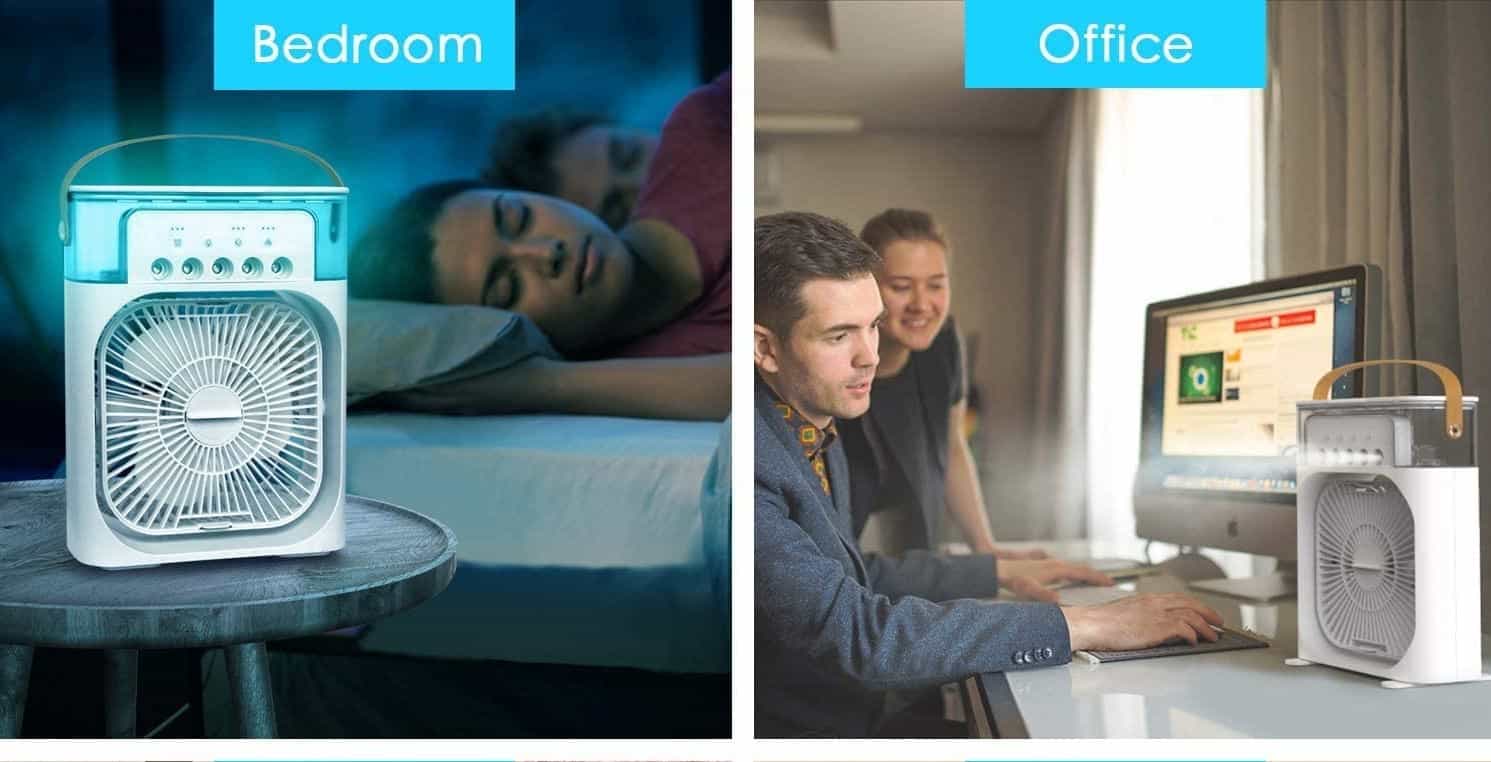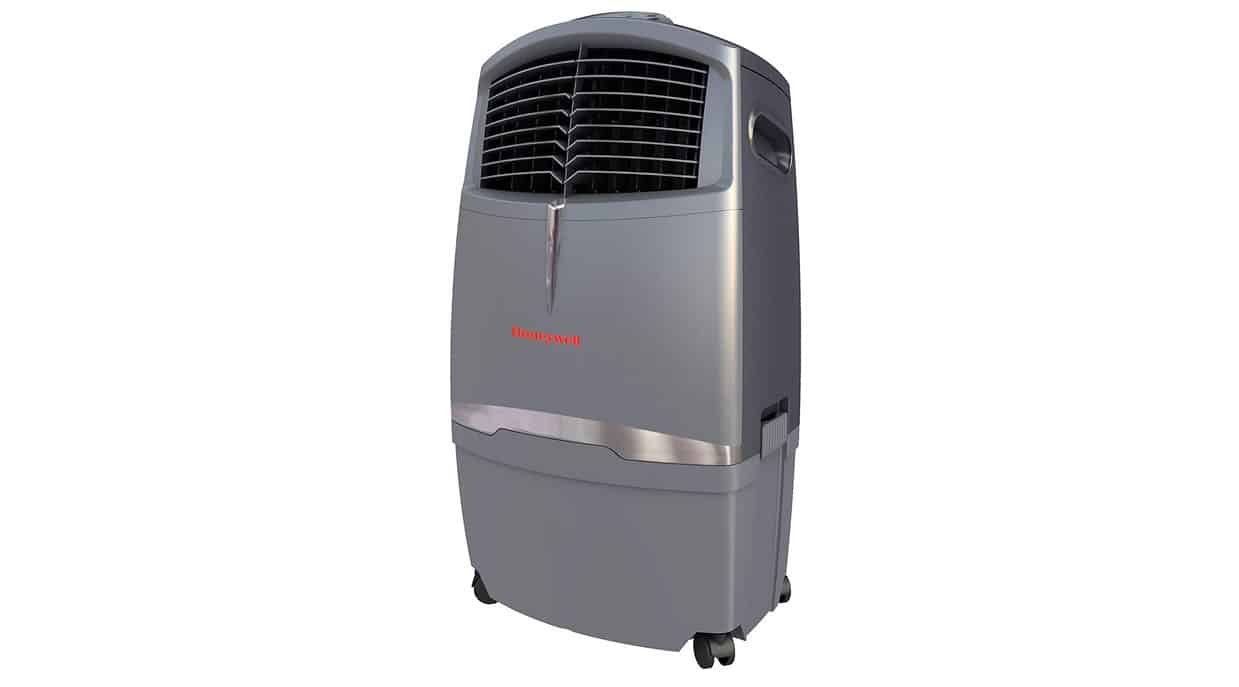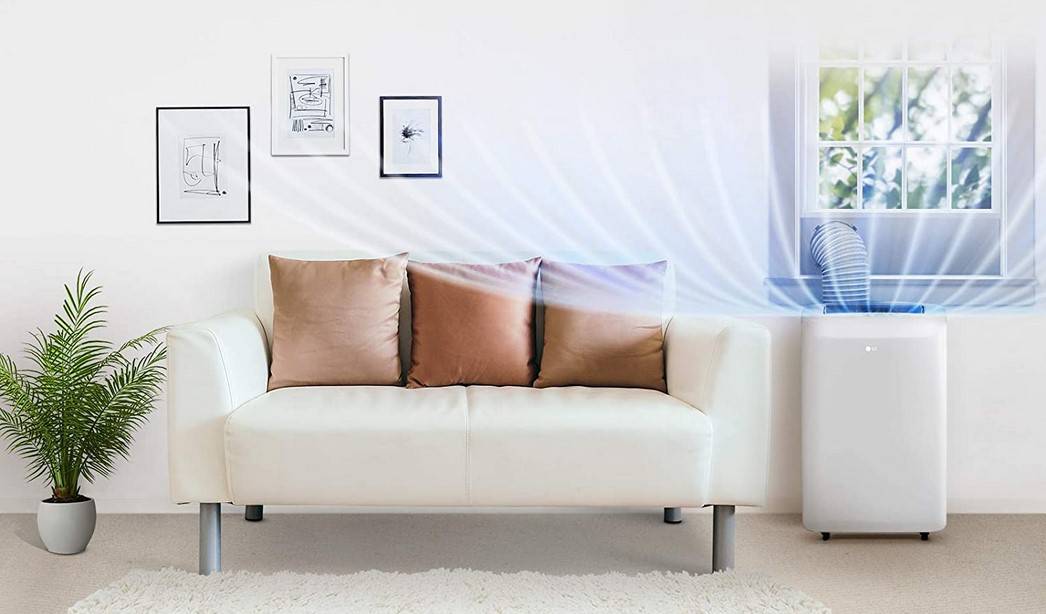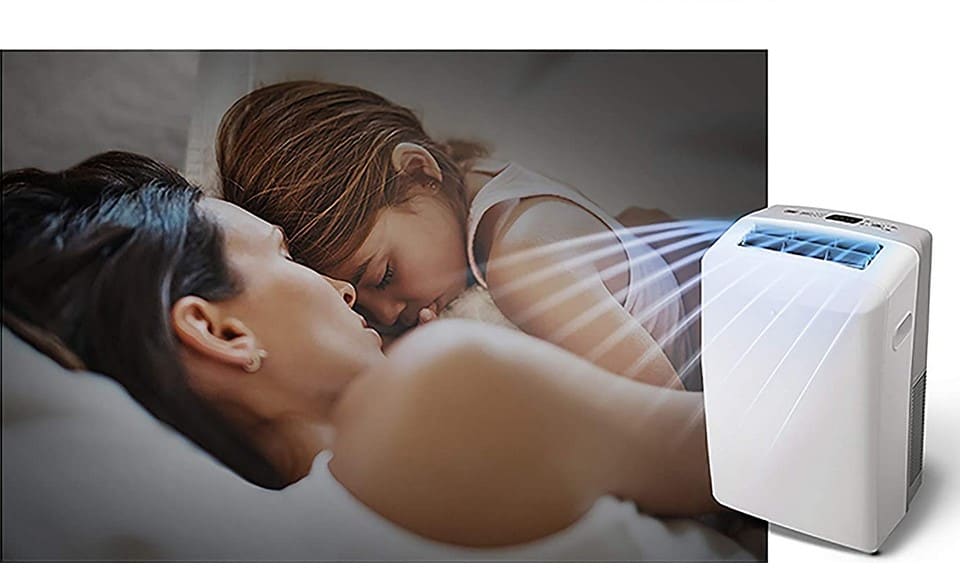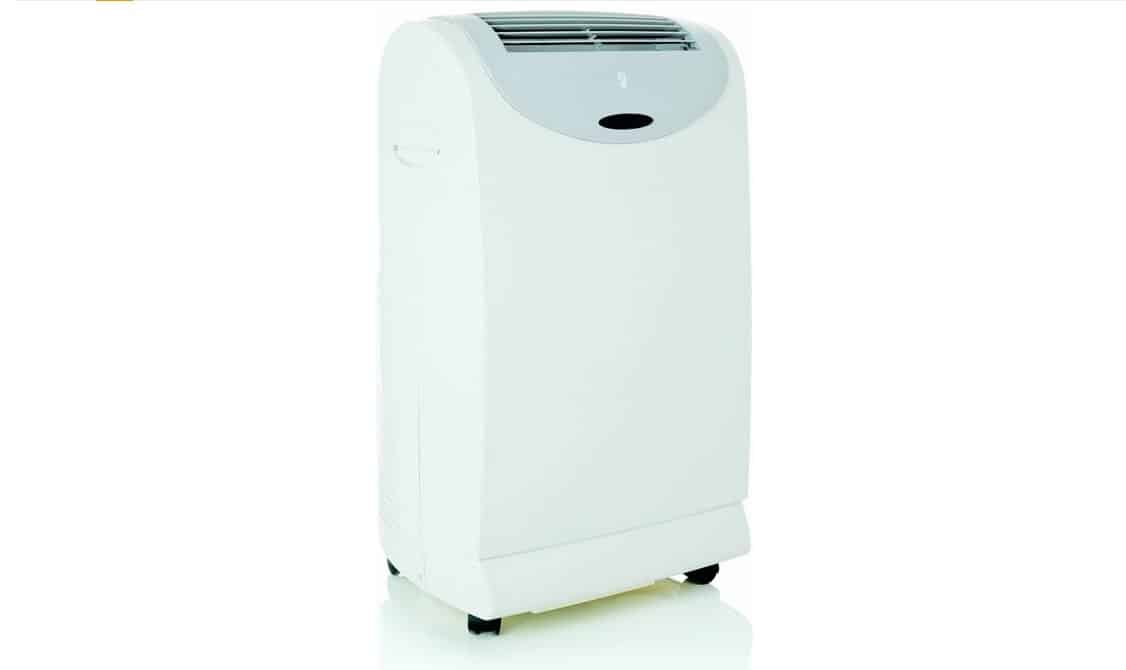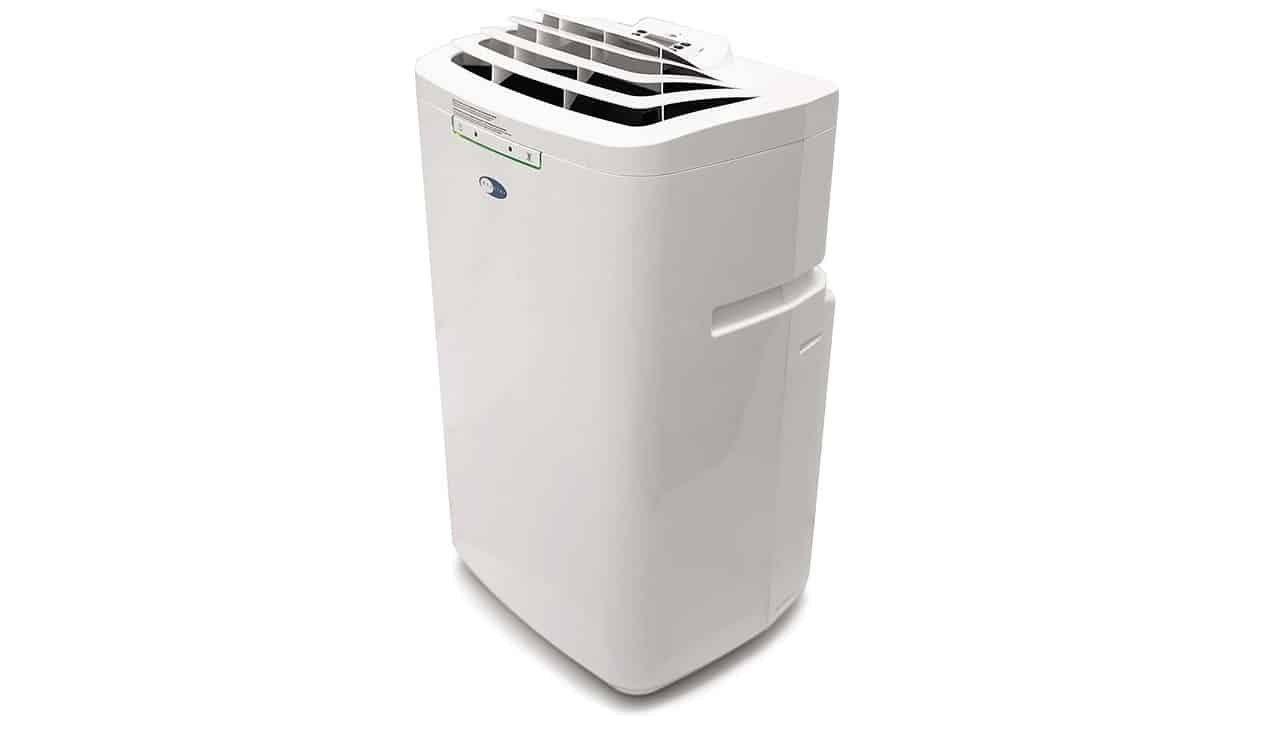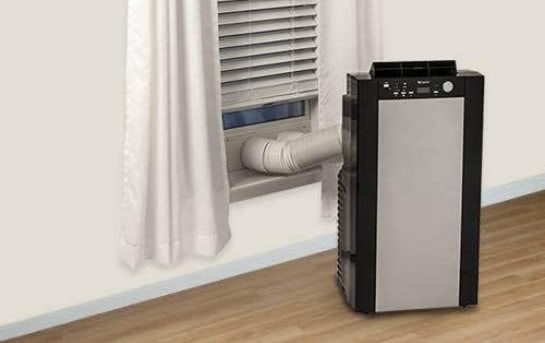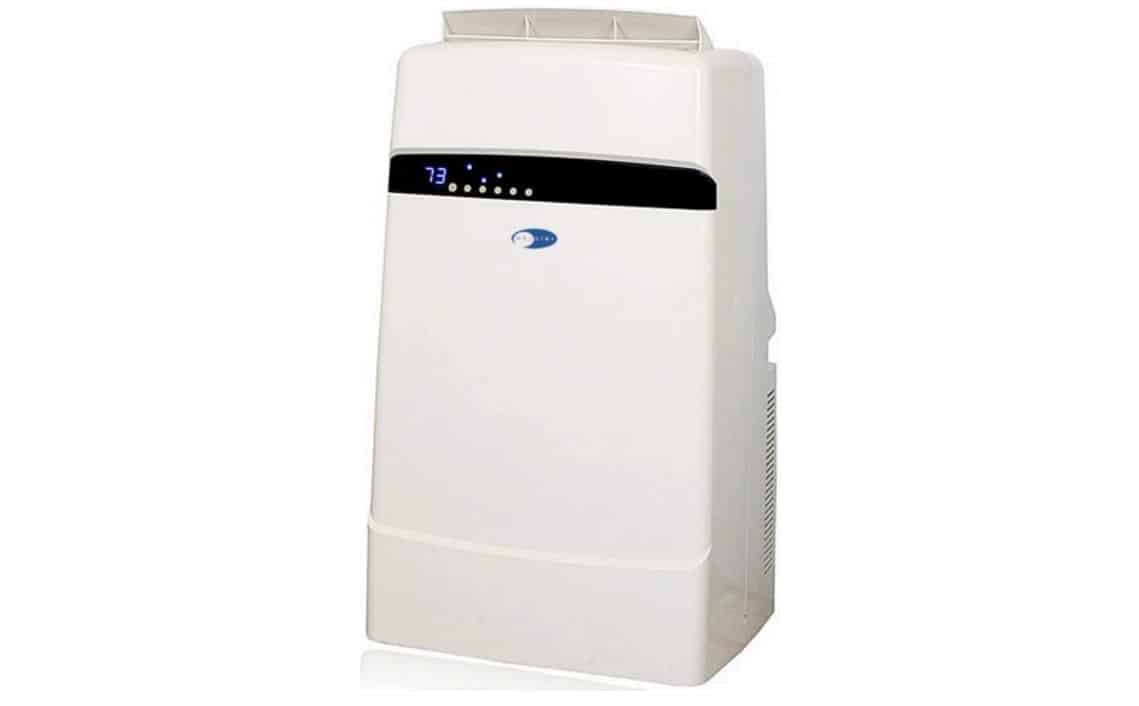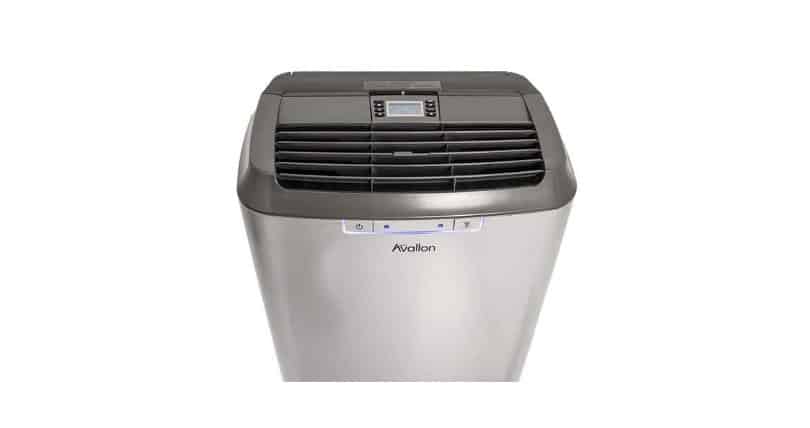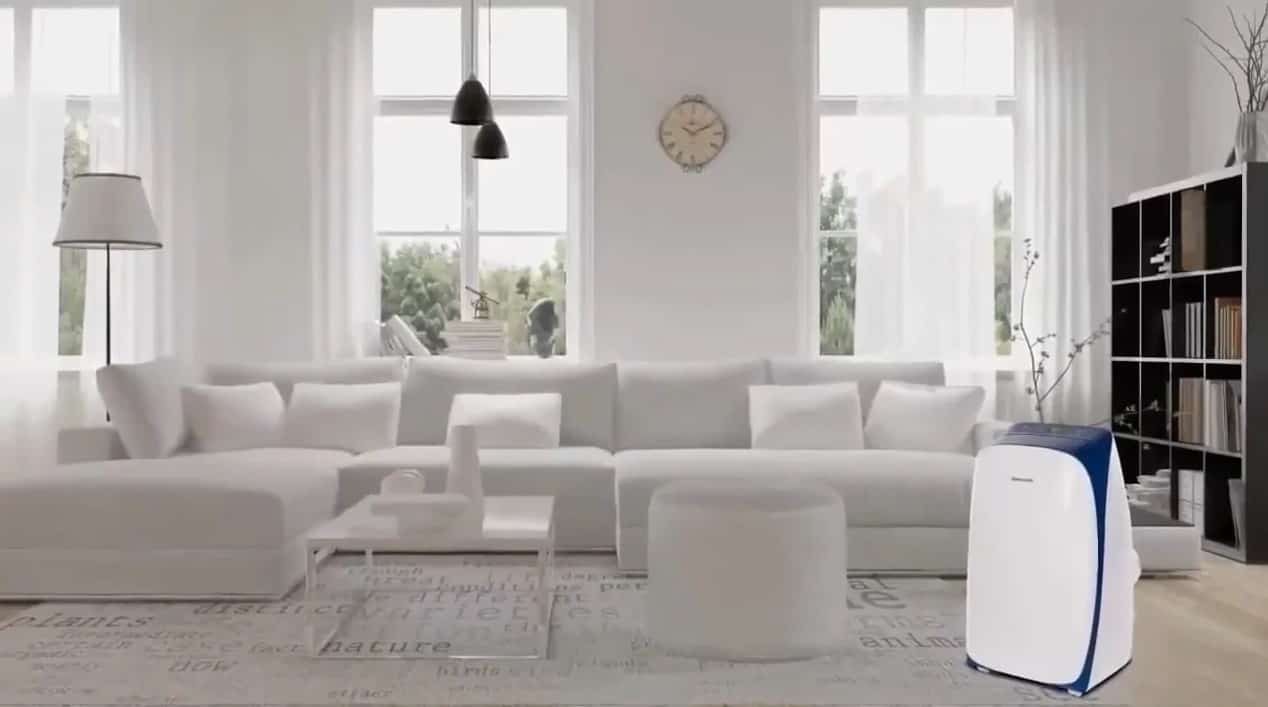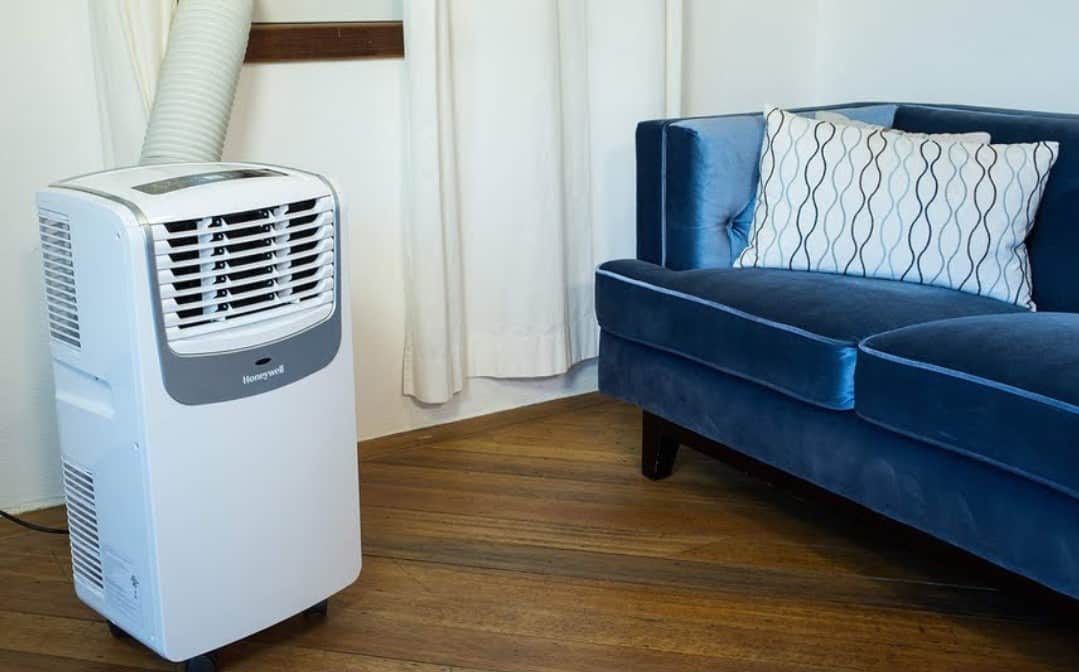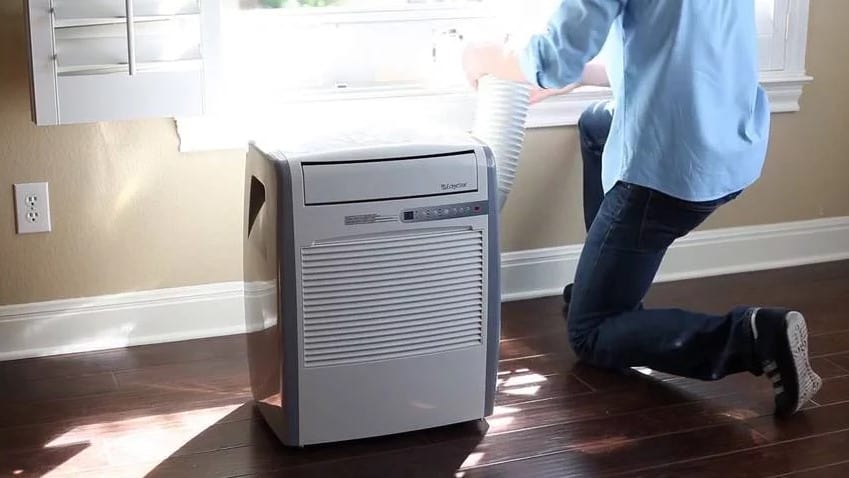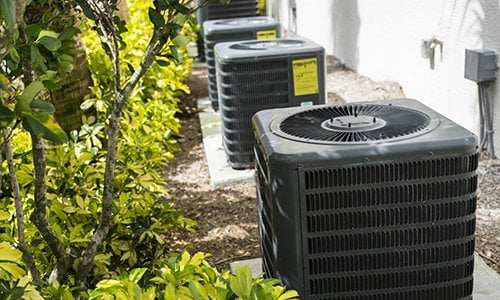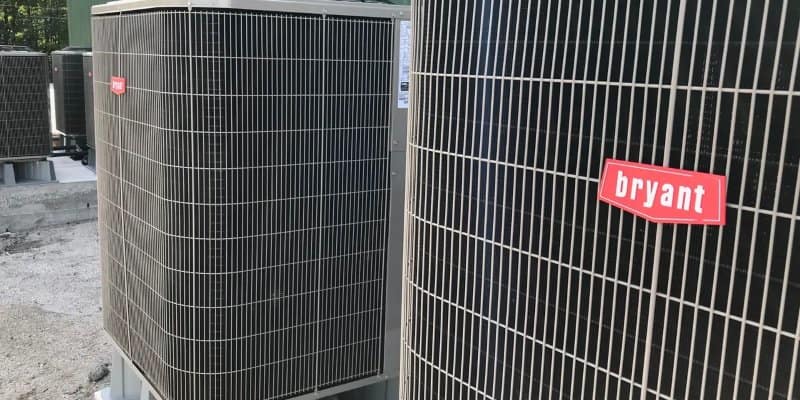As they become increasingly popular as an alternative to traditional air conditioners, more people are asking, does an air cooler work? Evaporative air coolers, sometimes called “swamp coolers,” or, conversely, “desert coolers” are a more recent addition to the air conditioner market, using a simple, Freon-free design that cools the air with moisture. The best air conditioner may not be an air conditioner at all, depending on your needs. It may very well be a portable air conditioner mister.
KEY TAKEAWAYS:
- Evaporative Air Coolers are an inexpensive, eco-friendly, option for room cooling with much lower energy costs than traditional air conditioners.
- Evaporative models can be effective for small spaces, and since most double as humidifiers, they can take the place of two appliances.
- Evaporative coolers will often not be sufficient for larger spaces and people sensitive to humidity should avoid most models.
While you’re looking at all the options available, read up on other possible related issues, such as dual-zone air conditioning problems. You may also want to look into permit laws for replacing air conditioning systems.
How Well Does an Air Cooler Work?
Evaporative air coolers arrived on the market several years ago as a low-cost, easy-to-use, quiet, and usually portable alternative to the traditional compressor and Freon-based window air conditioners and or a central air conditioner. Read on to find out how portable air coolers work. They function differently from how an inverter air conditioner works.
Insider Tip
Most air coolers can perform the job of three different appliances: an air cooler, a fan, and a humidifier.
While they’ve become a popular option for many, it’s not always clear how effective they are compared to the alternative.
History of Evaporative Air Coolers
Though they’ve only become a common option in the past decade or so, the history of evaporative cooling technology actually goes back at least to Ancient Egypt, where clay jars filled with cool water were placed in natural wind tunnels to cool air in nearby chambers.
Modern models are more efficient and effective, but the principle is the same: cold water is evaporated into the air, and the cooled water vapor lowers ambient temperature.
How Evaporative Coolers Work
Fundamentally, air coolers use cool water vapor to cool a room, but the way they achieve this needs a little more explaining.
In most air cooler models, a water pump sends water droplets from a built-in refillable basin or water tank to cooling pads above it, while a fan blows room air across the pads. The water droplets are evaporated by the fan air and the water vapor is blown out into the room, where it cools air temperatures.
Although there are a few variations, this is the basic system for most air coolers available. So is it effective? Well, that depends.
How Air Coolers Compare to Air Conditioners
There’s a reason evaporative cooling goes back thousands of years- it works, up to a certain point. The bottom line is, air coolers can be effective in smaller rooms, and only if you’re not looking for an enormous drop in temperature.
You can set an air conditioner to cool a room to 60 degrees if desired, which is chillier than most people would want it. Conversely, most air coolers won’t be able to cool an 80-degree room to much lower than about 72 degrees.
Of course, in very dry or arid climates, they can be much more effective. And an eight-degree drop is still a sufficient difference to make a space a lot more comfortable for most people, even if it’s not precisely the ideal temperature. That said, a room that’s 900 square feet and 90 degrees in the summer heat might be a lot tougher to make comfortable with an air cooler.
Why Air Coolers May Be The Right Choice For You
The main benefits of air coolers, then, are their much lower cost than traditional AC units, the fact that they’re usually somewhat portable and don’t need to be installed into a window, their quiet operation, and for most models, their dual function as a humidifier. If your cooling needs aren’t great, they’re an economical, effective solution, and energy-efficient, despite relying on electrical power.
Warning
Air coolers are much less effective in very hot or very humid spaces.
F.A.Q.S
Is an air cooler better than a fan?
An air cooler is much more effective than a fan for cooling off. An air cooler both cools the air and functions as a fan, whereas fans merely blow air around without changing its temperature of it.
What are the disadvantages of air coolers?
The main disadvantage evaporative cooling systems have is that they aren’t capable of effectively cooling a space to the same degree as other types of air conditioners, making them less suitable for large spaces or cooling very hot rooms. Another possible disadvantage can also be an advantage depending on the user and the space. Most air coolers also function as humidifiers, since they put water vapor into the air. This makes them unsuitable for humid environments or people sensitive to high humidity levels.
Do I live in the right climate for an evaporative cooler?
Areas that experience high temperatures and low humidity are a good fit for air coolers. In a very dry room, an air cooler can lower temperatures by up to 20 degrees, whereas in areas with normal or excessive humidity, 8-10 degrees of cooling is more typical.
STAT: For every 1 degree an air cooler drops a room’s temperature, they add 2-3% to its humidity. (source)
REFERENCES:

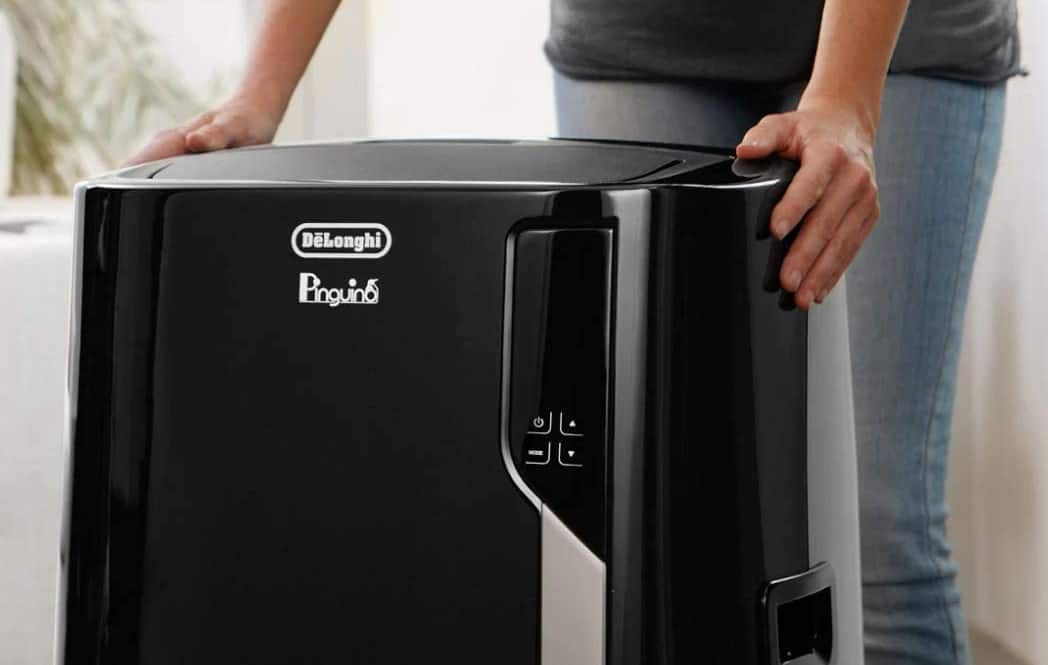













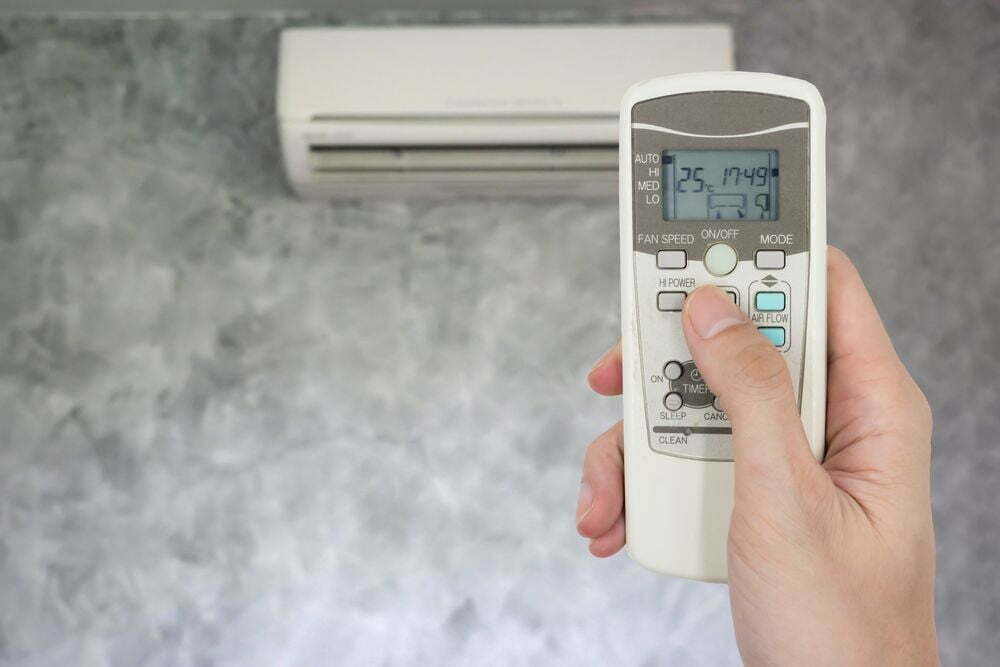
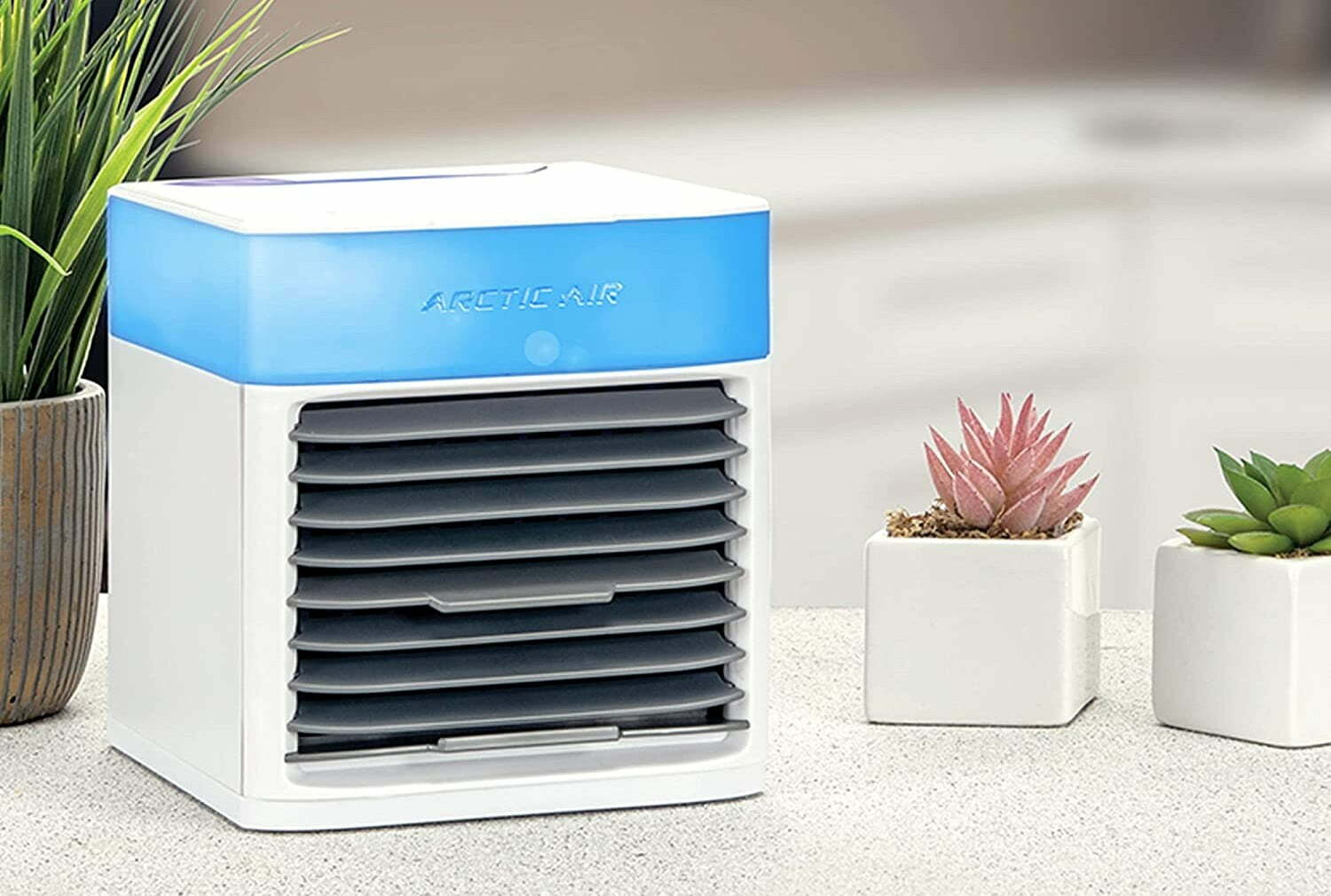
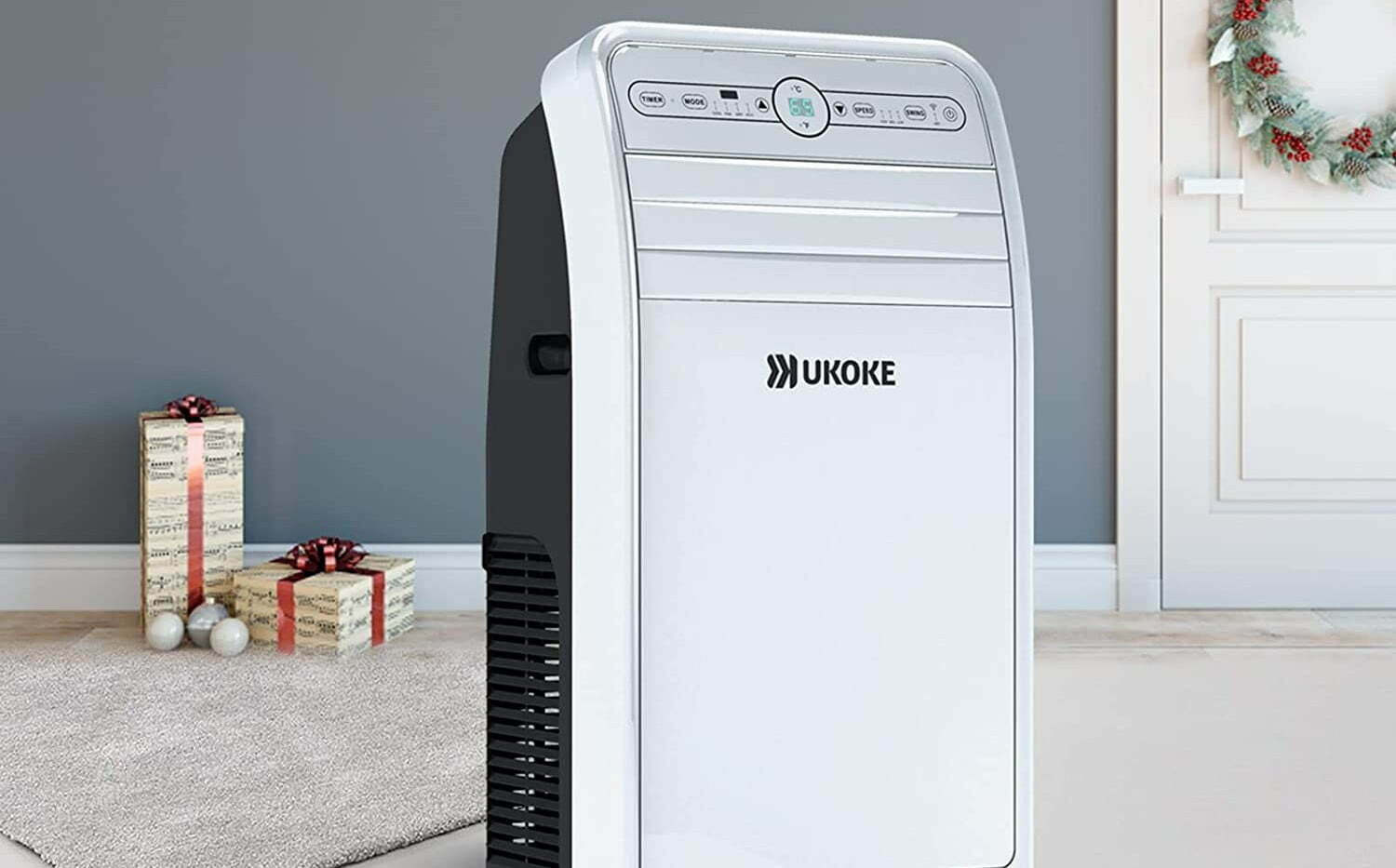
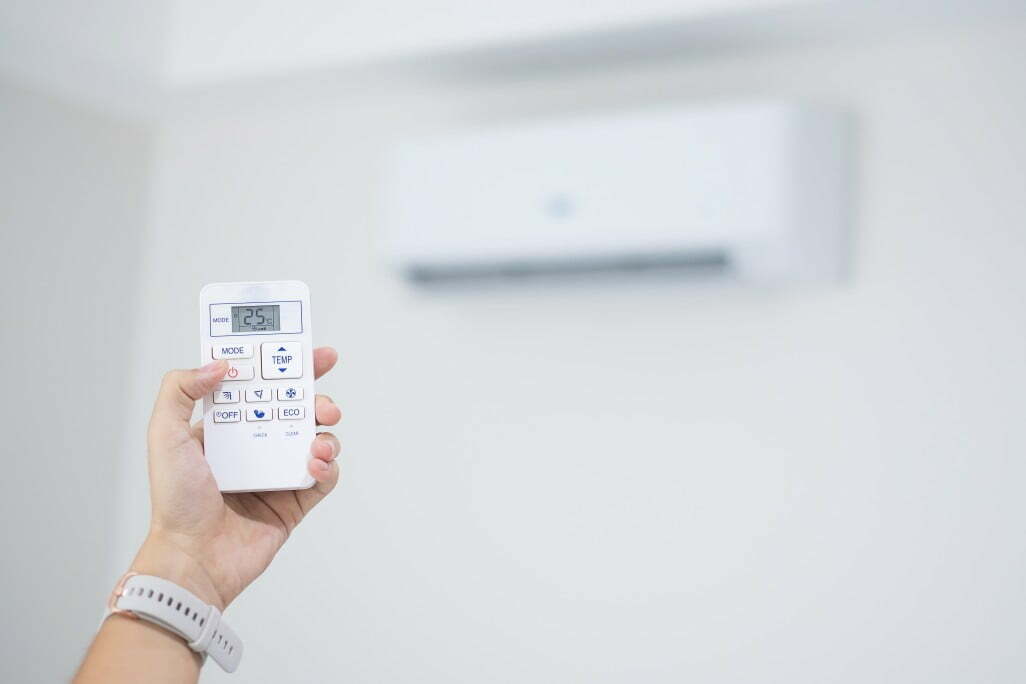
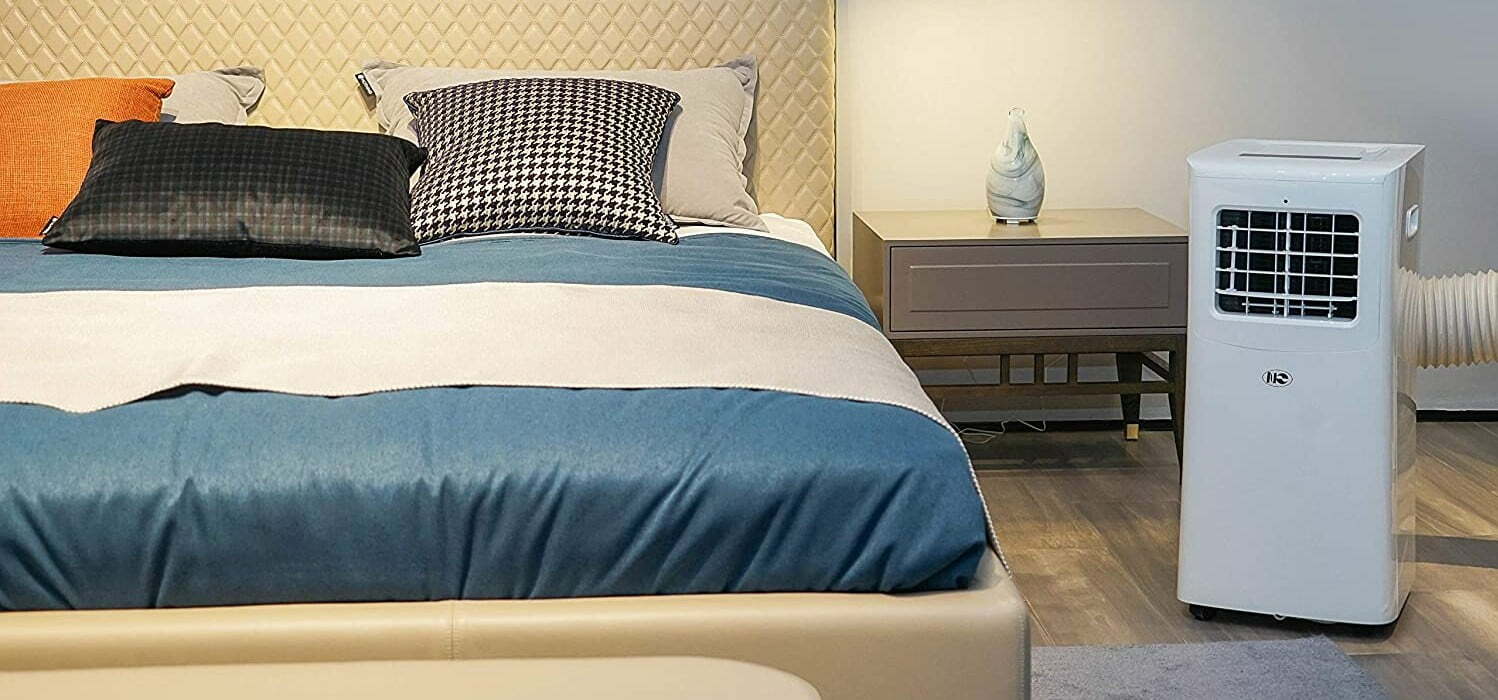
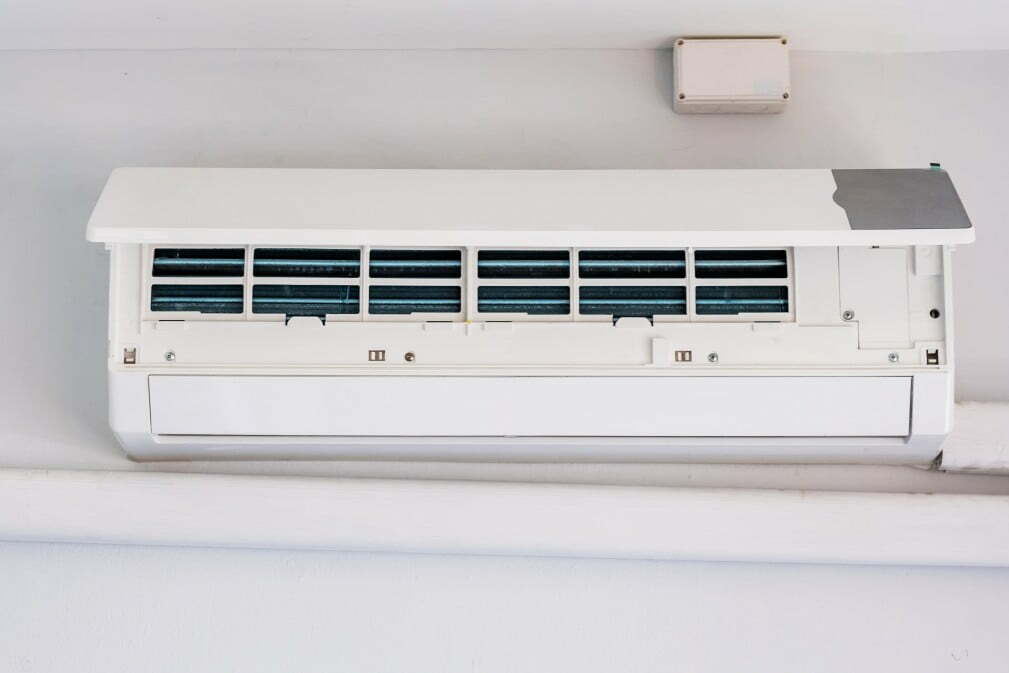
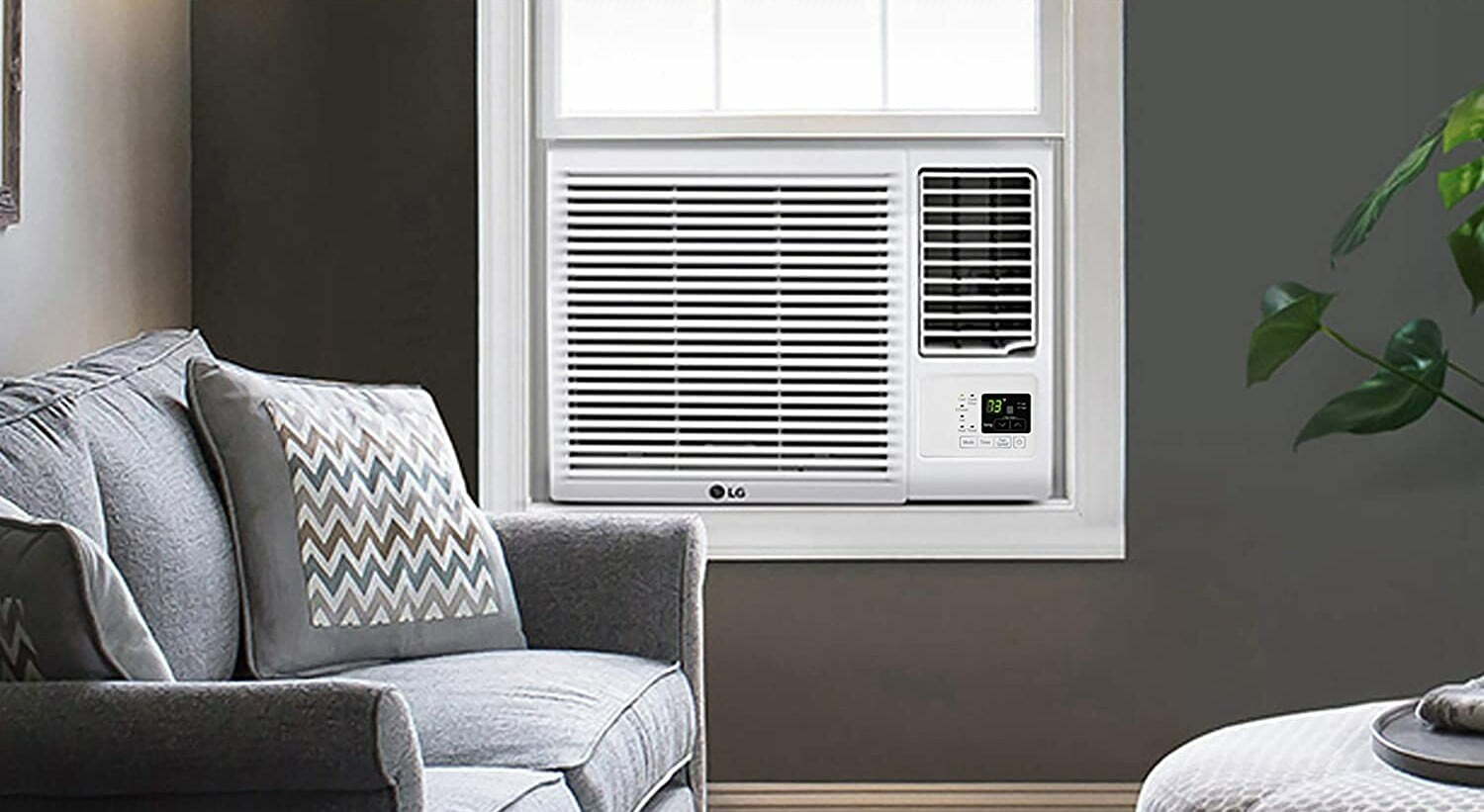
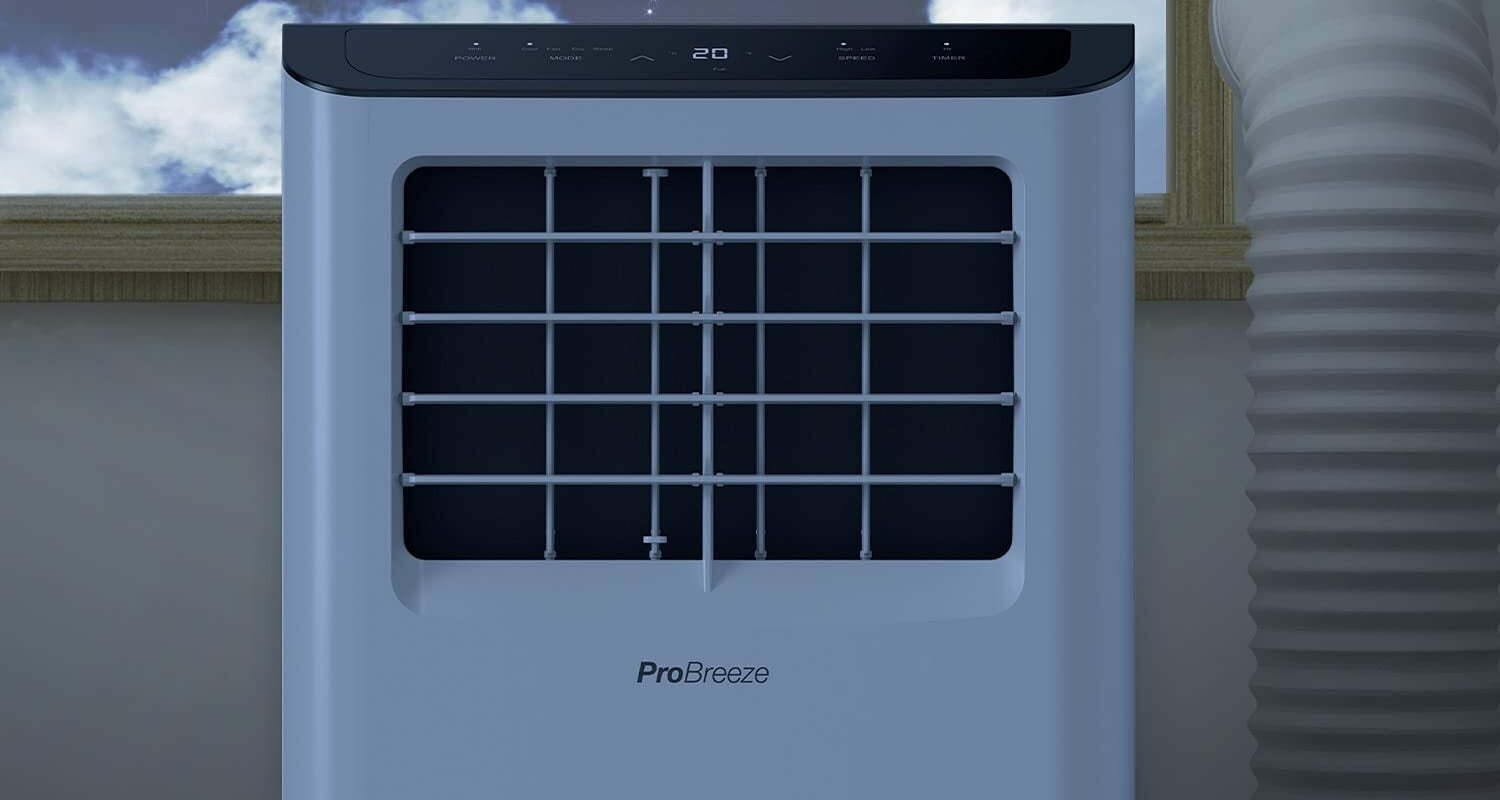
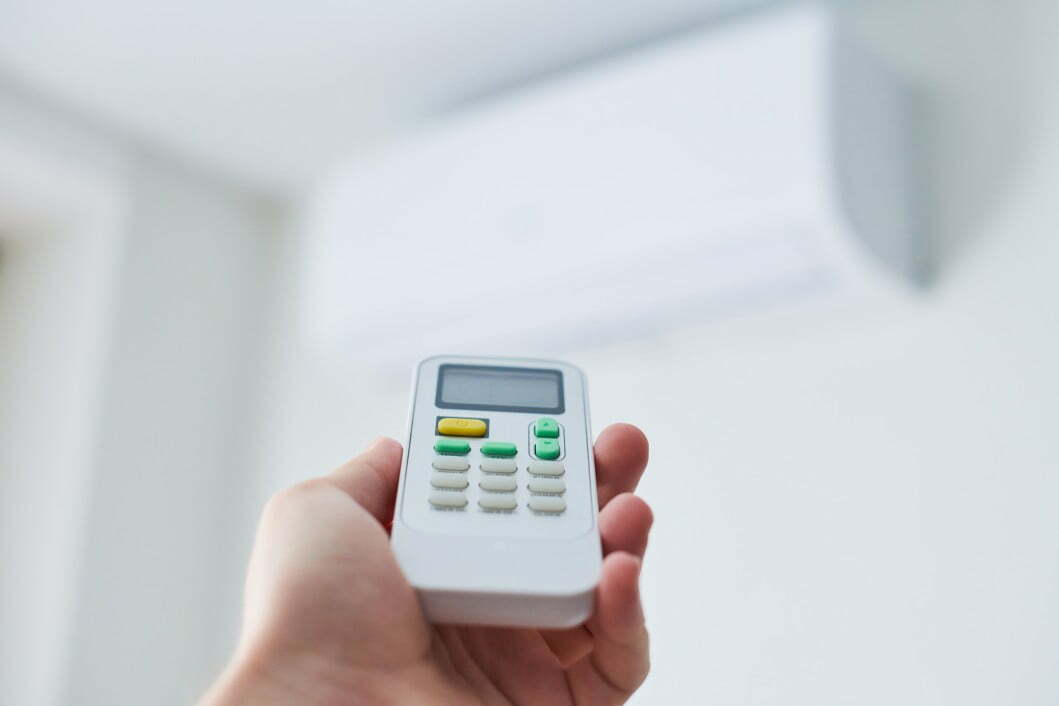
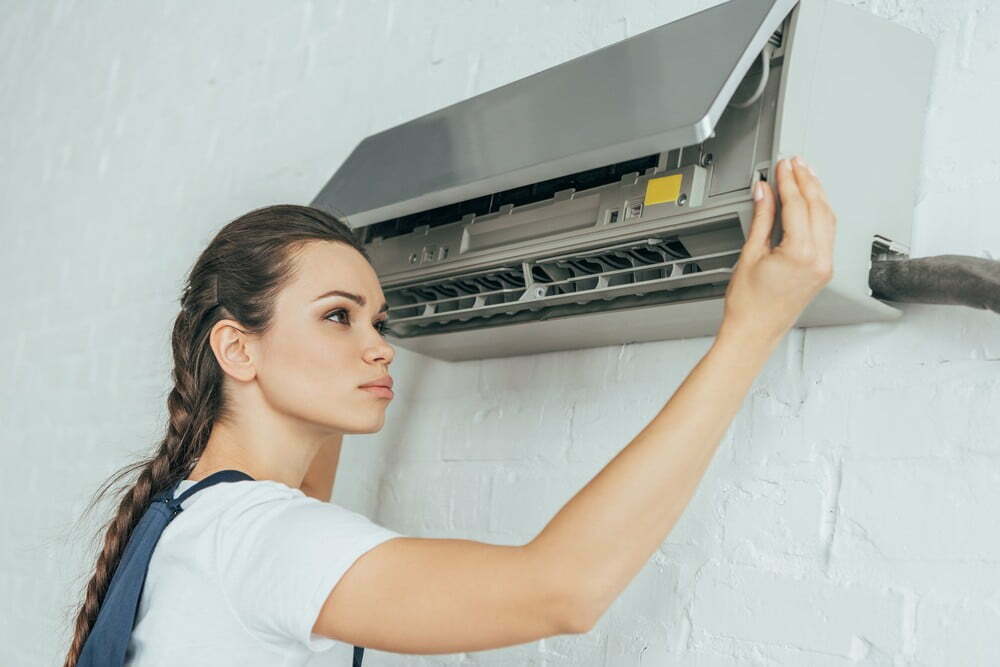
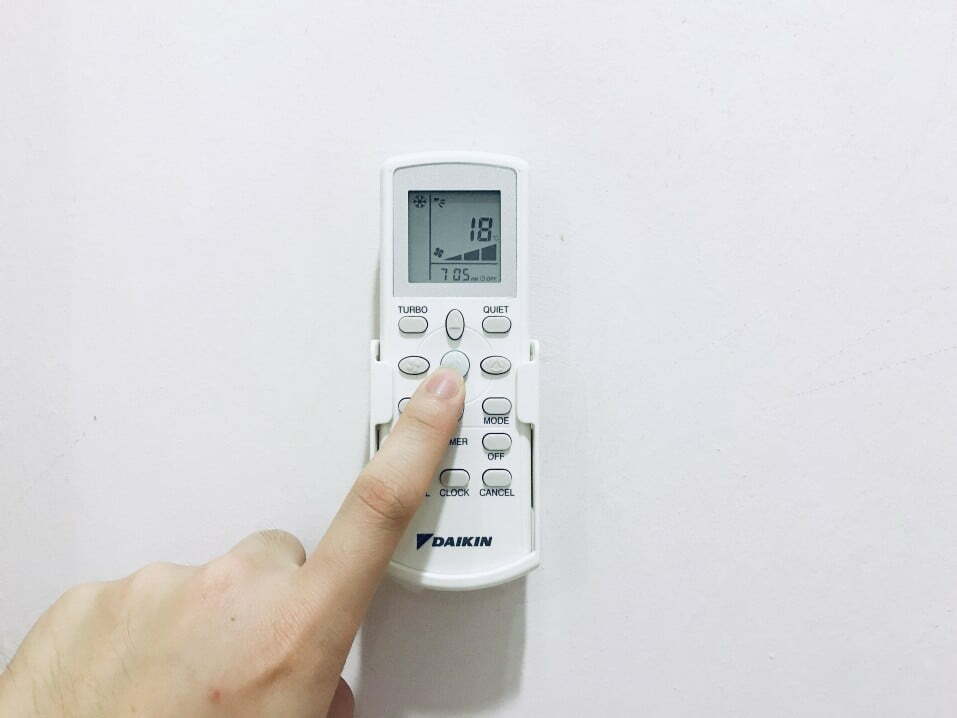
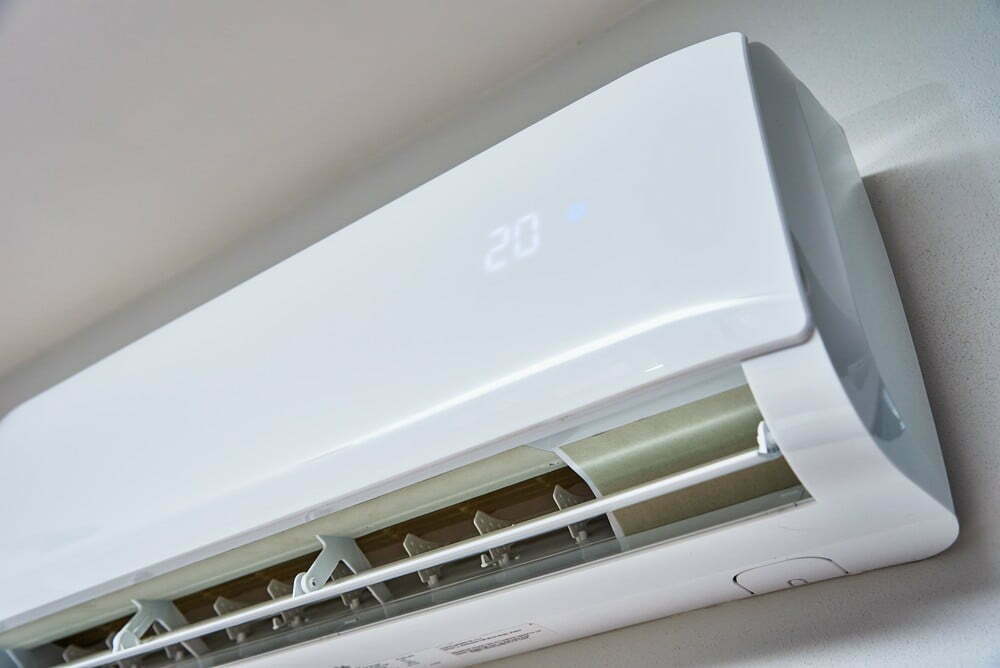
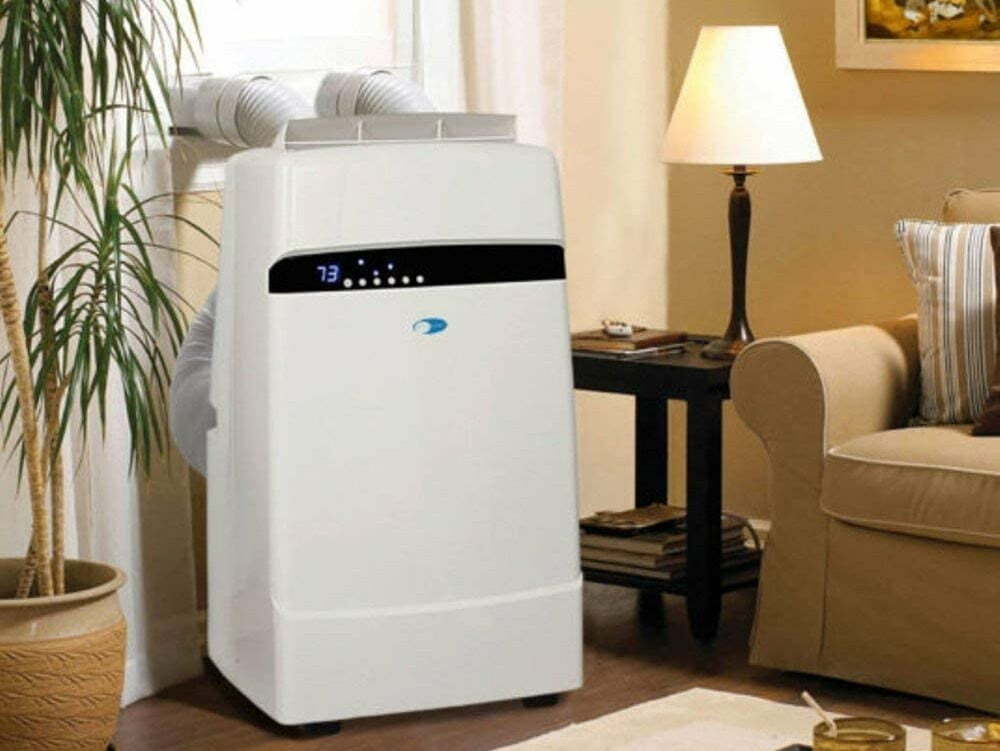
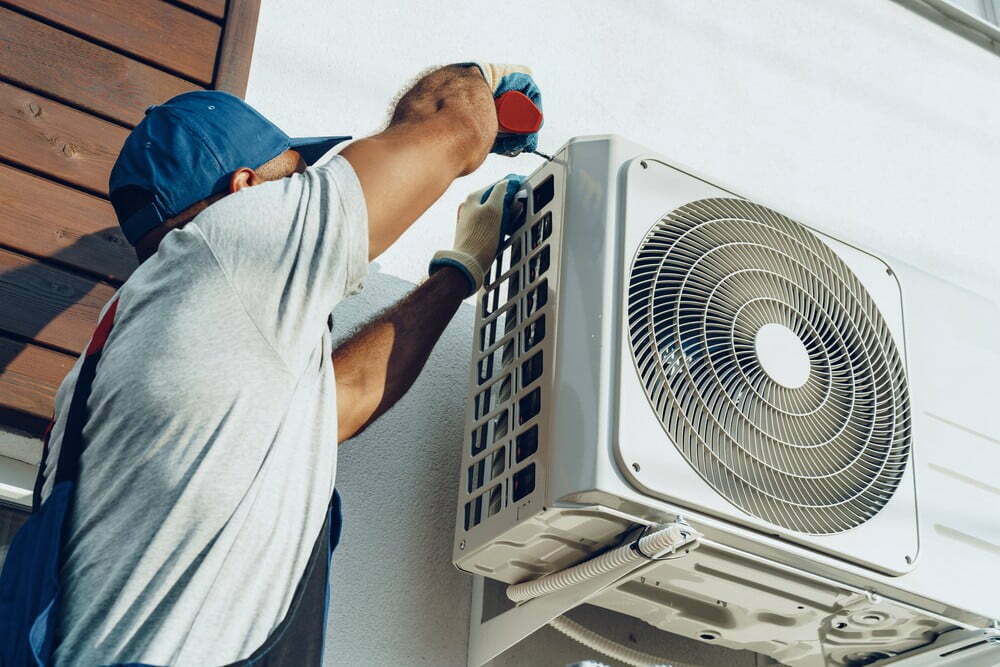
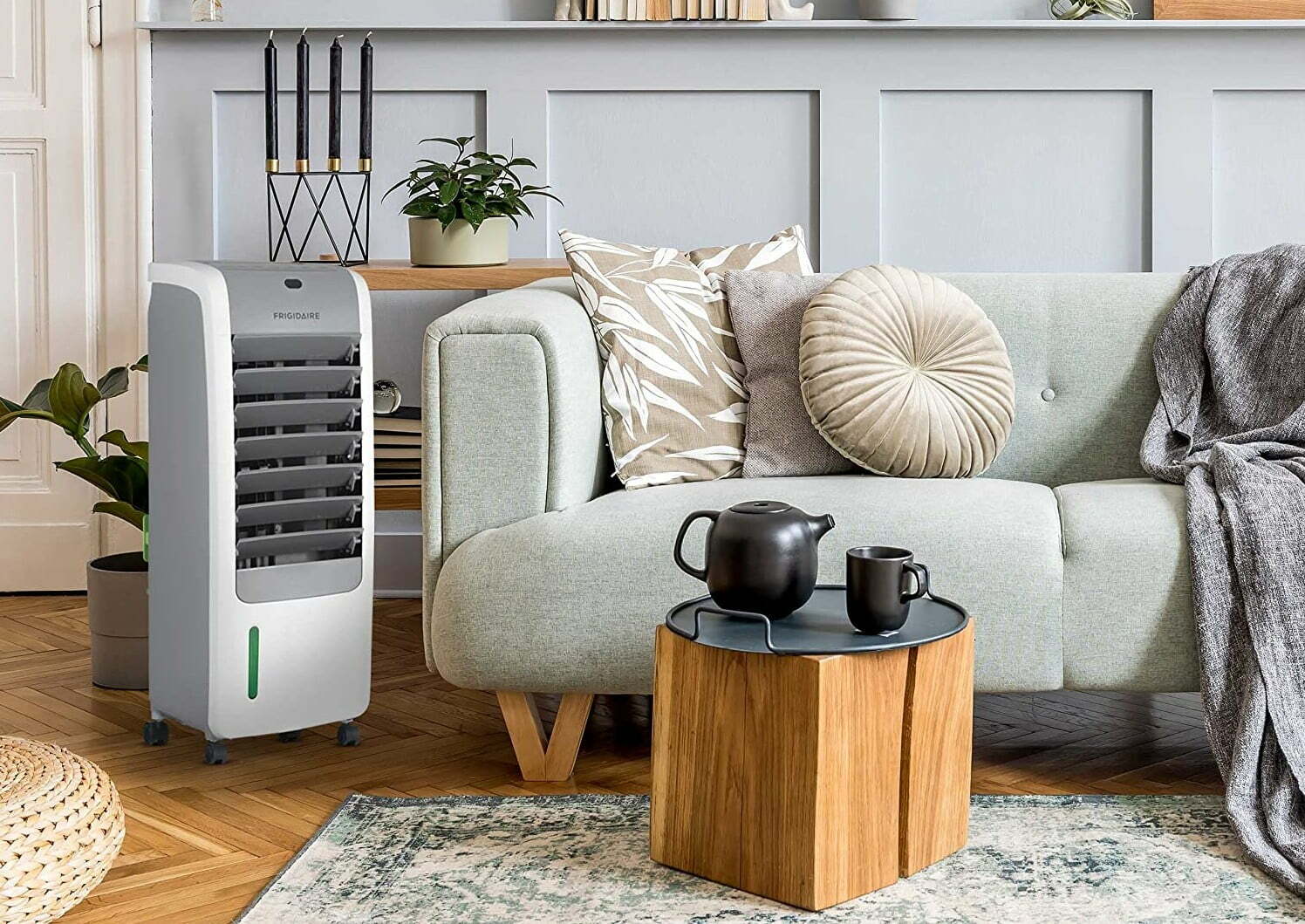
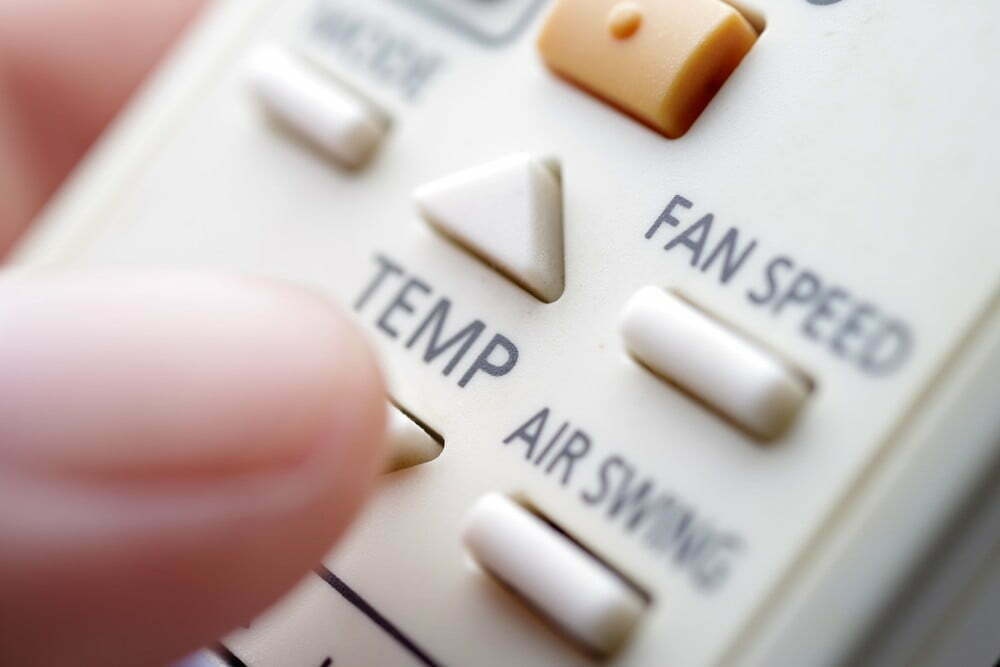
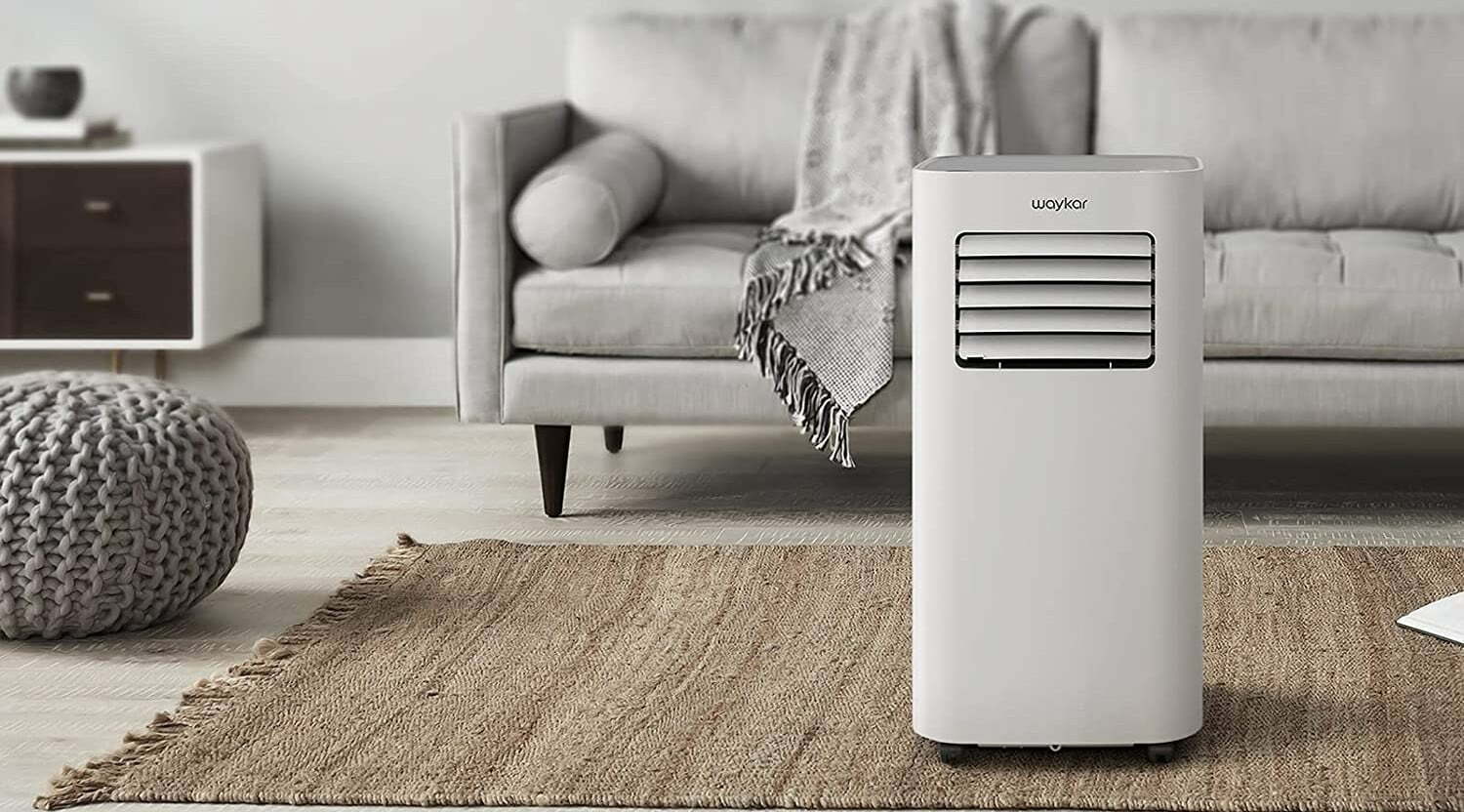
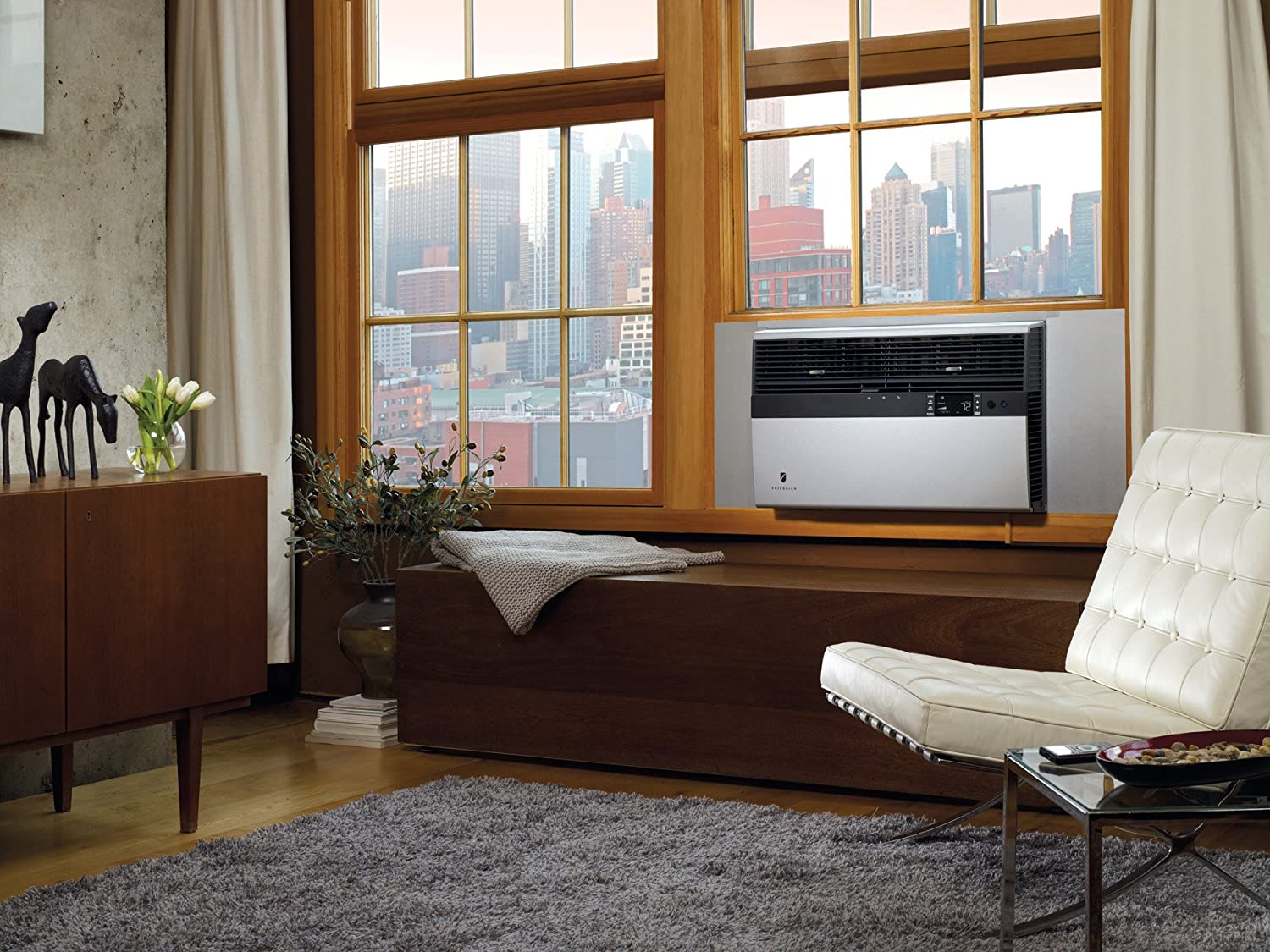
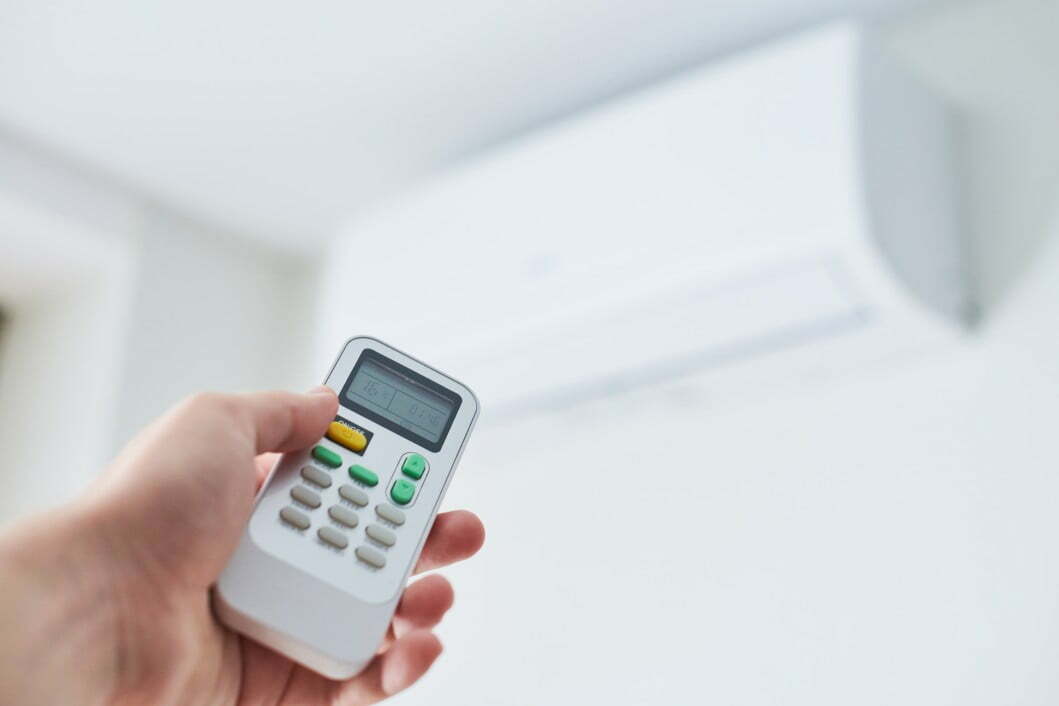
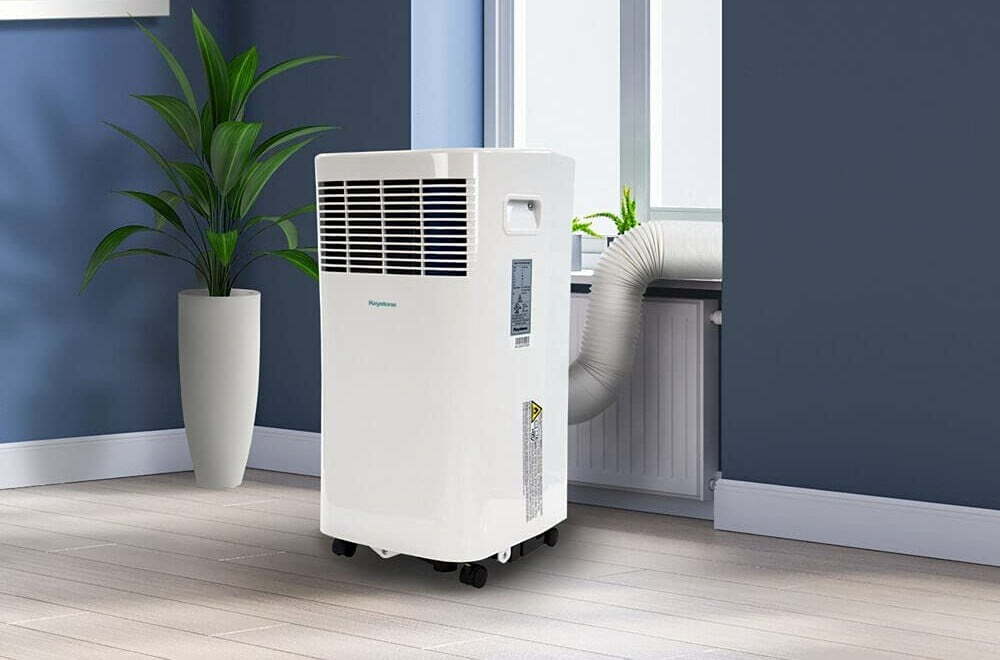
![Best Air Conditioners in [year] ([month] Reviews) 27 Best Air Conditioners in 2025 (December Reviews)](https://www.gadgetreview.dev/wp-content/uploads/best-air-conditioners-image.jpg)
![Quietest Through The Wall Air Conditioners in [year] 28 Quietest Through The Wall Air Conditioners in 2025](https://www.gadgetreview.dev/wp-content/uploads/quietest-through-the-wall-air-conditioner-image.jpg)
![Best 10000 BTU Air Conditioners in [year] 29 Best 10000 BTU Air Conditioners in 2025](https://www.gadgetreview.dev/wp-content/uploads/best-10000-btu-air-conditioner-image.jpg)
![Best 15000 BTU Air Conditioners in [year] 30 Best 15000 BTU Air Conditioners in 2025](https://www.gadgetreview.dev/wp-content/uploads/best-15000-btu-air-conditioner-image.jpg)
![Best 15000 BTU Window Air Conditioners in [year] 31 Best 15000 BTU Window Air Conditioners in 2025](https://www.gadgetreview.dev/wp-content/uploads/best-15000-btu-window-air-conditioner-image.jpg)
![Best 12000 BTU Air Conditioners in [year] 32 Best 12000 BTU Air Conditioners in 2025](https://www.gadgetreview.dev/wp-content/uploads/best-12000-btu-air-conditioner-image.jpg)
![Best Photocatalytic Oxidation Air Purifiers in [year] 33 Best Photocatalytic Oxidation Air Purifiers in 2025](https://www.gadgetreview.dev/wp-content/uploads/best-photocatalytic-oxidation-air-purifier-image.jpg)
![Best Ventless Portable Air Conditioners in [year] 34 Best Ventless Portable Air Conditioners in 2025](https://www.gadgetreview.dev/wp-content/uploads/best-ventless-portable-air-conditioner-image.jpg)
![Best Window Air Conditioners with Heat in [year] 35 Best Window Air Conditioners with Heat in 2025](https://www.gadgetreview.dev/wp-content/uploads/best-window-air-conditioner-with-heat-image.jpg)
![Best Inverter Air Conditioners in [year] 36 Best Inverter Air Conditioners in 2025](https://www.gadgetreview.dev/wp-content/uploads/best-inverter-ac-image.jpg)
![Best HEPA Air Purifiers in [year] 37 Best HEPA Air Purifiers in 2025](https://www.gadgetreview.dev/wp-content/uploads/best-hepa-air-purifier-image.jpg)
![Best Quiet Window Air Conditioners in [year] 38 Best Quiet Window Air Conditioners in 2025](https://www.gadgetreview.dev/wp-content/uploads/quiet-window-air-conditioner-image.jpg)
![Best Energy Efficient Window Air Conditioners in [year] 39 Best Energy Efficient Window Air Conditioners in 2025](https://www.gadgetreview.dev/wp-content/uploads/best-energy-efficient-window-air-conditioner-image.jpg)
![Best Quiet Portable Air Conditioners in [year] 40 Best Quiet Portable Air Conditioners in 2025](https://www.gadgetreview.dev/wp-content/uploads/quiet-portable-air-conditioner-image.jpg)
![Best 6000 BTU Air Conditioners in [year] 41 Best 6000 BTU Air Conditioners in 2025](https://www.gadgetreview.dev/wp-content/uploads/best-6000-btu-air-conditioner-image.jpg)
![Best 8000 BTU Air Conditioners in [year] 42 Best 8000 BTU Air Conditioners in 2025](https://www.gadgetreview.dev/wp-content/uploads/best-8000-btu-air-conditioner-image.jpg)
![Best Small Window Air Conditioner in [year] 43 Best Small Window Air Conditioner in 2025](https://www.gadgetreview.dev/wp-content/uploads/best-small-window-air-conditioner-image.jpg)
![Best 5000 BTU Air Conditioners in [year] 44 Best 5000 BTU Air Conditioners in 2025](https://www.gadgetreview.dev/wp-content/uploads/best-5000-btu-air-conditioner.jpg)
![Best Mini Split in [year] 45 Best Mini Split in 2025](https://www.gadgetreview.dev/wp-content/uploads/best-ductless-mini-split-air-conditioner-image.jpg)
![10 Best Portable Air Conditioners and Heaters in [year] 46 10 Best Portable Air Conditioners and Heaters in 2025](https://www.gadgetreview.dev/wp-content/uploads/best-portable-air-conditioner-and-heater-image.jpg)
